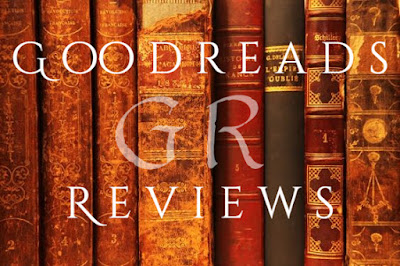After the fun post I made about Pharaoh Akmenrah, I decided to buy the NATM movies and I completely binged watched all of them yesterday. Are they the best movies out there? No, not at all, but there's no denying they make for a fun watch on a boring Saturday. Because all the NATM movies have the same basic plot, I'm going to post my general thoughts in bullet reviews instead of my usual essay form. An idea I got from Cordy at Any Merry Little Thought.
Night at the Museum (2006)
When struggling single dad, Larry Daley, gets what seems to be a usual mundane night guard job at The American Museum of Natural History, he finds out very quickly that this job is far from ordinary. Due to a magical Egyptian tablet, all the artifacts in the museum come to life at night. With the help of President Theordore Roosevelt and other lively historical figures, Larry finds his place guarding the museum and keep the nights alive.
- The storyline was spot on genius. The idea of bringing history to life was fantastic and definitely opens up great creative avenues for fan-fiction writers who love history.
- I personally want to write a story about Phoebe Ann Mosey AKA Annie Oakley. I think she would fit in perfectly with the museum crowd (and of course, she falls in love with Ahkmenrah).
- Owen Wilson, people! I love him! Jedediah and Octavias are the ultimate bromance.
- I really like Larry's ex-wife. She knew that Larry was a good dad and that's why she was so hard on him to get a good steady job.
- Nicky Daly--Larry's son--is so sweet! I loved that he was written as a good kid who loved his dad and not some irritating brat. Children of divorced parents can oftentimes ruin the film, but Nicky is a jewel.
- Robin Williams played President Theodore Roosevelt to perfection. If there's someone I want on my side during chaos, it's him.
- The end credits song was awesome.
- Rebecca, the museum research historian was so sweet and fun. It's a shame she wasn't in the following films.
- Dexter the monkey stole every scene.
- Ahkmenrah. Enough said.
Night at the Museum: Battle of the Smithsonian (2009)
After former museum night guard, Larry Daley, successfully launches his own company, he hasn't had much time for the museum or his friends. Then Larry gets the news that several of the exhibits are being shipped off to the Smithsonian for storage. When the Smithsonian is taken over by Kumanrah, Ahkmenrah's maniacal, older brother, Larry has only a matter of hours to get to D.C. and stop Kumanrah from starting a reign of magical terror.
- This is my least favorite film, primarily because Larry is alone without the help of Teddy or his friends. Instead he has to rely on Amelia Earhart.
- I wanted to like Amelia, but she was so annoyingly perky and her 1930s slang got very aggravating. Her constant feminist diatribe got old really quickly too.
- There was little to no Jed and Octavias. Wrong on all accounts.
- Ahkmenrah had a sum total of 1 minute of screen time. Total waste of a great character.
- Kumanrah was hysterical, but after I read his background story of how he murdered his brother to get the throne, I really didn't care for him after that
- Nicky Daley was still great.
- Darth Vader and Oscar the Grouch make a fabulous cameo.
- I liked Kumanrah's goon squad of Napoleon Bonaparte, Ivan the Terrible and Al Capone.
- The Jonas Brothers as the singing cherubs were awesome.
- "Joey Motorola!"
Night at the Museum: Secrets of the Tomb (2014)
When Ahkmenrah's tablet begins to lose its power, the exhibits start to malfunction and break down. The only people that know the secret of restoring the tablets power are Ahkmenrah's parents, who are on exhibit at the British Museum. Larry, Nicky and the rest of the main museum crew take a hop across the pond to sneak into the British Museum causing chaos and disorder during their mission.
- This one was infinitely better!
- Dan Stevens as crazy, disillusioned Lancelot was an unexpected casting decision, but he pulled it off.
- Ahkmenrah's parents, Pharaoh Merennkahre and Shepseheret were fantastic and just completely rolled with Larry's plan.
- Ahkmenrah, himself, finally got a good amount of screen time.
- The bromance of Jed and Octavias was strong in this film.
- Hugh Jackman! Hugh Jackman! "That's a ridiculous name!"
- Rebel Wilson as, Tilly, the night guard! I loved her!
- Nicky Daley had his moments as a 17 year old who didn't know what he wanted after school, but he came through, like always.
- The ending was bitter sweet, but it wrapped up the trilogy really well.
- The dedications to Robin Williams and Mickey Rooney at the end credits were beautiful.
Final Thoughts
- I'll admit, I bought and watched the series because of Ahkmenrah. I feel no shame.
- These movies renewed an interest in museums which are a great importance to society.
- It was good to see history portrayed as fun and accessible.
- After going on museum tours all over D.C. last year, I have a great appreciation for the people who work hard at the museums.
- It was a smart idea of throwing together people from different time periods.
- All of the end credit songs were great.
- I always wondered how the damages to the Smithsonian and the British Museum were explained.
- We never found out if Nicky went to Spain.
- This series is great.
- Watch them for fun and if for no other reason for Rami Malek.































